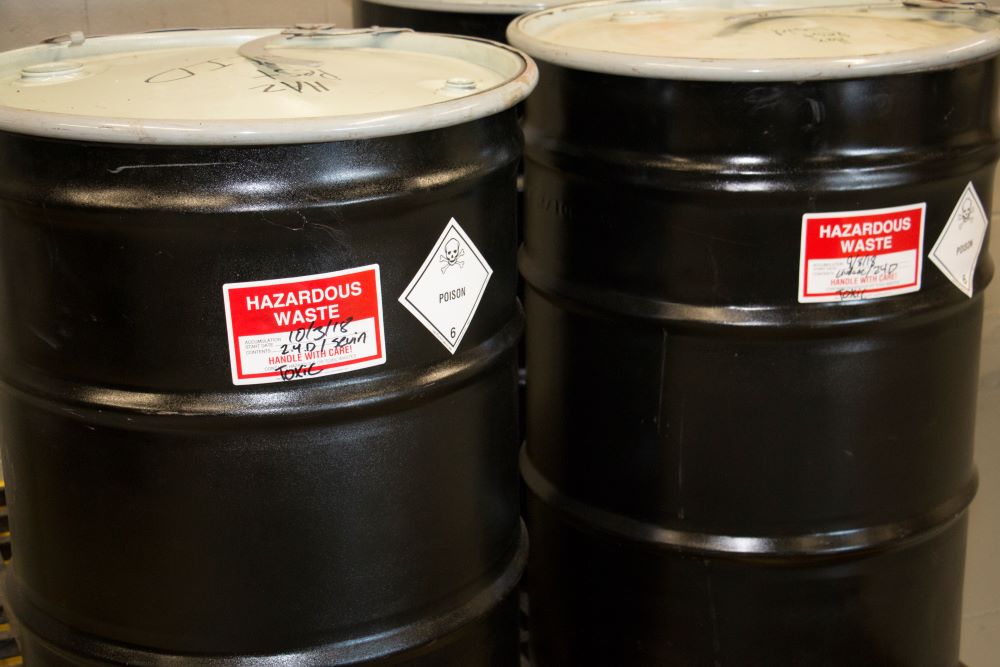When it comes to hazardous waste, a homeowner and a business owner have very different needs, types of hazardous products, and very different rules and regulations they need to follow. These distinctions are important to know whether you’re disposing of residential hazardous waste, commercial hazardous waste, or find yourself in an edge case like an at-home business. It’s time to learn the difference and get the resources you need to dispose of your hazardous waste.
Rules and Regulations of the EPA and MassDEP
It’s the US Environmental Protection Agency (EPA) that lays out federal regulations for hazardous waste, and the state-level agencies – for MA, the Massachusetts Department of Environmental Protection (MassDEP) – that enforce those rules. In simple terms, these focus on the entire lifecycle (cradle to grave) of hazardous waste set out by the EPA’s Resource Conservation and Recovery Act. They are:
- Hazardous Waste Generation: All hazardous waste generators have to determine if their waste is hazardous and are responsible for it. This includes identification and management.
- Hazardous Waste Transportation: There are limits on how much hazardous waste can be stored by the generator. At some point, it must be transported, which is regulated by the US DOT.
- Hazardous Waste Recycling, Storage, and Disposal: Treatment, Storage, and Disposal Facilities (TSDFs) provide temporary storage and final treatment or disposal of hazardous wastes.
Differences Between Commercial and Residential Hazardous Waste
In a word, the difference between commercial and residential hazardous waste is scale. While a residential household might generate a small amount of hazardous waste in the form of electronics (eWaste) or chemicals (such as cleaning products or pesticides), an industrial company might generate gallons per day of hazardous waste as a byproduct, contamination, or remediation/cleaning. Because of this scale, commercial hazardous waste is much more regulated in the generation and storage phase than residential waste.
Dealing with Hazardous Waste from Small Businesses
Of course, not all businesses generate industrial amounts of waste. Small and at-home businesses often still generate hazardous waste, which they need to manage like any other company, but there are often state-led programs to deal with Very Small Quality Generators (VSQG), such as MA’s program that allows them to transport their own waste and use residential hazardous waste collection centers.
Resources for Disposal of Hazardous Waste in MA
If you’re looking to get started on disposing of hazardous waste of your household or company, here are a few helpful links to get you started, including services available in your area.
- MA Residential Hazardous Waste Services: Check on your local city or town website or your local MA Board of Health to see any hazardous waste events or options they provide.
- MA Commercial Hazardous Waste Services: You’ll want to learn more about MassDEP Hazardous Waste Management rules and regulations.
- NEDT & Household Hazardous Waste Collection Centers: Here at New England Disposal Technologies, we have both commercial and residential hazardous waste services available.
NEDT is on standby if you have any questions or need help disposing of hazardous waste. For our commercial hazardous waste services, contact us to learn more about our services, including transportation, remediation, and disposal. For residential, you can stop by one of our NEDT Household Hazardous Waste Collection Centers, contact us if you have questions or want to use our pick-up service, or call us at 1 (866) 769-1621.



Leave a Reply